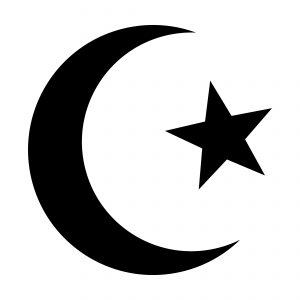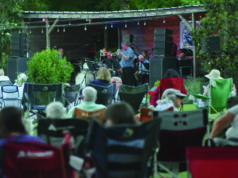The Safer at Home directive locally and statewide is forcing Jews, Christians and Muslims to celebrate their upcoming holy days from their homes instead of the traditional celebrations at their places of worship.
Temples, churches and mosques will be utilizing live streaming or taped services to reach their membership for Passover, Easter and Ramadan during the pandemic.
Among Lakeland and Memphis synagogues, churches and mosques, some shared their plans for upcoming holy days worship services.
Judaism
The Jewish community will celebrate one of their most sacred and widely observed holidays with Passover from sundown Wednesday (4.8.20) to sundown April 16th.
At Temple Israel, they will have a virtual taste of Passover Seder at 6 p.m. Thursday (4.9.20). Guests will take turns reading from the Haggadah, singing, and being together as a congregational family. Additional information on their website. https://timemphis.org/event/a-virtual-taste-of-passover-seder/
The Passover schedule at Baron Hirsch Congregation starts today (4.7.20) and continues until next week. Link to information: https://fef6f431-c615-4ea4-ac9e-e16aad23722d.filesusr.com/ugd/228e4a_9d442a0ee7f747ec98e8def40e47615d.pdf
The Chabad.org site explains Passover (aka Pesach meaning skip or jump) as the springtime holiday observed by Jewish people everywhere on the date when G‑d (God) took the Jewish people out of Egypt. It lasts for eight days (seven days in Israel), during which no bread, or anything that contains grain that has fermented, is to be consumed or even owned.
On the first two nights (one night in Israel), a special feast, a Seder, is held. The highlights of the Passover Seder are: retelling the miraculous story of Exodus, eating matzah (a flat, cracker-like food) and maror (bitter herbs), and drinking four cups of wine.
As G‑d was poised to take the Israelites out of Egypt, He instructed Moses to tell the people of Israel to prepare by bringing a sheep into their homes. On the night that He was about to bring death upon the Egyptians, the Israelites slaughtered the lambs and ate them with matzah and maror. They were also instructed to take the blood of the lamb and smear it on their doorposts, a sign to G‑d that this was an Israelite home, to be passed over, while death was visited upon the firstborns in all other homes. This is what gave the Passover sacrifice (and holiday) its name.
Christianity
At. St. Paul UMC in Lakeland, Rev. Birgitte T. French said they will have Facebook live- streaming Easter, as they have been doing on recent Sundays since the Safer at Home order was announced. “Our services are also posted on our web site. Our worship starts at 10:30am.” https://www.stpaul-lakeland.org/
From Emily Austin, minister of communications for The Episcopal Diocese of West Tennessee: “All in-person gatherings are currently on hold indefinitely, but all of our larger parishes are offering online streaming of services. Our congregations both large and small are forming partnerships to share resources and build fellowship and community while maintaining social distance.” https://episwtn.org/
Rick Ouellete, director of communication for the Catholic Diocese of Memphis, said services throughout Memphis will be livestreamed on Facebook pages or YouTube or taped Masses and posted to the church’s website like St. Francis of Assisi. https://cdom.org/direct-streaming/
Confessions are being conducted on a limited basis at parishes or drive-thru at some of the churches. https://cdom.org/confession-days-and-time-across-our-parishes/ From Bishop David P. Talley, “For many years, the Church has required that all Catholics confess their mortal sins once a year and receive Holy Communion at least once a year during the Easter season. This is often referred to as the ‘Easter Duty.’
“Since the current pandemic has disrupted our ability to administer Holy Communion on a regular basis, I want everyone to have peace of conscience regarding this norm. I, therefore, dispense all laity and religious in the Diocese from the obligation of receiving Holy Communion during the Easter season for this year.”
Bishop Talley will celebrate Easter Mass at the Cathedral of Immaculate Conception at 7 a.m. Sunday, which will be broadcast on WREG Channel 3 (CBS).
Link to the Diocese website: https://cdom.org
At Hope Church, their services will be streamed online starting Thursday through Easter. From their webpage, “As Hope Church continues to do our part to help “flatten the curve” of the current Covid-19 pandemic, we’re excited to connect online only for powerful worship and an inspiring message as we celebrate the “comebacks” from life’s obstacles, and focus our attention on the greatest comeback story ever: the resurrection of Jesus.” Link to their webpage: https://www.hopepres.com/easter
For Lakeland First Baptist Church, the Easter Service will be available on a Vimeo feed. Link to their website is https://www.lakelandfbc.org/ and Facebook page https://www.facebook.com/lakelandfirstbaptist
Other area churches offering livestreaming include Bellevue Baptist Church, https://www.bellevue.org/ and Sycamore View Church of Christ, https://sycamoreview.org/.
From crosswalk.com, Easter is the celebration of the resurrection of Jesus from the tomb on the third day after his crucifixion. Easter is the fulfilled prophecy of the Messiah who would be persecuted, die for our sins, and rise on the third day. (Isaiah 53). Remembering the resurrection of Jesus is a way to renew daily hope that we have victory over sin. According to the New Testament, Easter is three days after the death of Jesus on the cross.
Easter follows a period of fasting called Lent, in which many churches set aside time for repentance and remembrance. Lent begins on Ash Wednesday and ends on Good Friday, the day of Jesus’ crucifixion. The 40 day period was established by Pope Gregory 1 using the 40-day pattern of Israel, Moses, Elijah and Jesus’ time in the wilderness.
The week leading up to Easter is called The Holy Week, or “Passion Week”, and includes Palm Sunday (the day Jesus entered Jerusalem and was celebrated), Maundy Thursday (the “Last Supper” where Jesus met with his disciples to observe Passover), and Good Friday (when Jesus would be crucified on the cross).
Islam
Sameer Mansour, executive director for the Memphis Islamic Center, said, “We’ve been working with all Mosques in the Memphis area since this situation started and on March 16th came together to all agree on closing our Mosques and Religious Centers indefinitely.
“Since then we’ve been collaborating with our religious leaders to provide online content on a daily and nightly basis. We are now planning for Ramadan to be outside the mosque and creating programming that can be beneficial and keep the spirit of the month alive from our homes.”
Ramadan starts April 23rd and lasts a month. Link to MIC website: https://www.memphisislamiccenter.org/
Ramadan is the ninth month of the Islamic calendar, during which Muslims believe Allah (Arabic word for God) revealed the first verses of the Qur’an, the holy book of Islam. To acknowledge and celebrate the revelation of the Qur’an, Muslims intensely pray, fast (no food or water), and reflect for one month. Ramadan begins at the sighting of a full moon, which marks the start of the ninth month. Because the start of Ramadan relies on the sighting of a full moon, the starting date of Ramadan sometimes varies by a day or two depending on the country and region of the world.
Fasting, daily from sunrise to sunset, reminds Muslims of the suffering of the poor and hungry. It reminds us that we are all human and need to help people who are less fortunate. Fasting is also a way for us to physically and spiritually purify our bodies, in an effort to feel closer with God.
During Ramadan, most Muslims also donate to charities and feed the hungry. Fasting isn’t just limited to eating and drinking habits however. Muslims are encouraged to also avoid gossip and arguments, swearing, and anger or annoyance.











